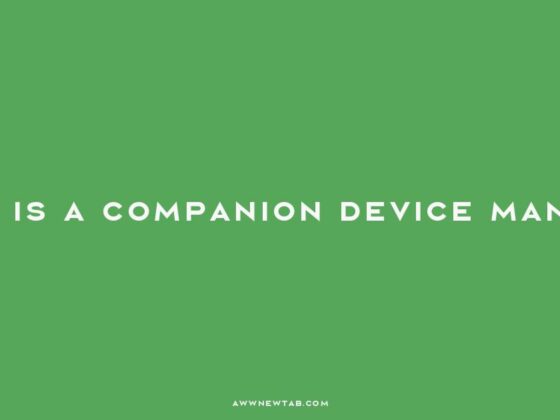What Does ChromeOS Stand For? Unveiling the Revolutionary Operating System that’s Changing the Game: Are you curious about the mysterious world of Chrome OS? Wondering what Chrome OS stands for and how it’s revolutionizing the way we use our devices? Look no further, because in this blog post, we’re diving deep into the fundamentals of Chrome OS and uncovering its secrets. From its close relationship with the Chrome browser to the embodiment of Chrome OS in Chromebooks, we’ll explore how this operating system is changing the game. So, whether you’re a tech enthusiast or simply someone looking to embrace the future of cloud computing, join us on this exciting journey as we unravel the wonders of Chrome OS.
Understanding the Fundamentals of Chrome OS
Google Chrome OS is a shining example of modern computing, designed for a world where the internet is a central part of our daily lives. As a Linux-based operating system owned by Google, it brings the power of web applications to the forefront, enabling users to operate entirely from the cloud. Notably, Chrome OS is the brainchild of the Chromium OS project, which is an open-source initiative that provides the foundation for Chrome OS’s development.
The Offspring of Chromium OS
When we delve into the lineage of Chrome OS, we uncover its roots in the Chromium OS project. As an open-source venture, Chromium OS serves as the bedrock upon which Chrome OS is built, allowing developers and enthusiasts alike to contribute to its growth. This collaboration and innovation are what make Chrome OS a constantly evolving platform.
Chrome Browser: The Interface of Chrome OS
The Google Chrome web browser is not only a popular tool for surfing the web but also the principal interface of Chrome OS. This integration means that users experience a seamless transition between navigating the web and managing their system, as the browser and the operating system are intrinsically linked.
A Lean Operating System
Chrome OS distinguishes itself by its minimalist approach, using one-sixtieth as much hard drive space as Windows 7. This efficiency makes it an ideal operating system for devices with limited storage, ensuring that the system’s performance remains swift and responsive.
Chrome OS: Revolutionizing Device Form Factors
Designed with a specific use case in mind, Chrome OS is tailored for netbooks and tablet PCs that harness web-based applications and data storage. This focus on cloud computing reflects a shift in how we interact with our devices and where we store our information.
Netbooks and Tablets as Primary Vessels for Chrome OS
The architecture of Chrome OS is optimized for netbooks and tablet PCs—devices that are inherently mobile and often rely on cloud services for their functionality. By accommodating these form factors, Chrome OS delivers a user experience that is both lightweight and connected, emphasizing accessibility and convenience.
Chrome OS and its Relationship with Chrome Browser
While Chrome OS is built atop the Chrome browser, it extends beyond it by incorporating essential operating system features. This combination provides users with a robust, yet straightforward environment that caters to those who predominantly use web applications.
From Browser to Operating System
The transition from Chrome as a browser to Chrome OS as an operating system represents a significant leap in functionality. While the browser offers a gateway to the web, Chrome OS empowers users with system management capabilities, such as file storage, settings, and peripheral support, all within the same interface.
Chromebooks: The Embodiment of Chrome OS
The physical representation of Chrome OS comes in the form of Chromebooks. These web-centric laptops are designed with the internet in mind and optimize the use of Google’s suite of applications and services.
Web-based Apps and Chromebooks
Chromebooks thrive on web-based apps like Gmail and Google Docs, which are seamlessly integrated into the operating system. The emphasis on web applications allows for a streamlined experience that prioritizes speed, security, and simplicity.
Android Apps on Chromebooks
Adding to their versatility, most Chromebooks have the capability to run Android apps. This functionality bridges the gap between traditional laptops and mobile devices, providing users with access to a vast array of applications that enhance the utility of their Chromebooks.
Chrome OS: A Paradigm of Cloud Computing
At its core, Chrome OS is a testament to the power and potential of cloud computing. By creating an operating system that is lightweight, web-centric, and versatile, Google has crafted a platform that is well-suited for the modern internet user.
The Minimalist Approach to System Design
The lightweight nature of Chrome OS is a deliberate choice, reflecting a focused approach to system design. By shedding the excess of traditional operating systems, Chrome OS facilitates a more efficient and direct interaction with the web and cloud services.
Chrome OS in the Context of Cloud Evolution
The evolution of Chrome OS mirrors the broader trends in cloud computing, as more services and applications migrate to the cloud. This shift underscores the importance of internet connectivity and the diminishing reliance on local storage and processing power.
Conclusion: Embracing Chrome OS in a Web-Centric World
In summary, Google Chrome OS stands as a prominent example of innovation in the realm of operating systems. With its origins in the open-source Chromium project, a browser-centric user interface, minimal storage requirements, and a focus on web applications, Chrome OS challenges conventional computing norms. It paves the way for a future where our computing experiences are more connected, more efficient, and more reliant on the power of the cloud.
As we embrace this web-centric world, Chrome OS offers a glimpse into the future of computing—a future where our devices are an extension of the cloud, and our data and applications are accessible from anywhere, at any time.
FAQ & Related Questions about ChromeOS
Q: What does ChromeOS stand for?
A: ChromeOS stands for Google Chrome Operating System.
Q: What is ChromeOS used for?
A: ChromeOS is primarily used to run web applications such as Google Docs.
Q: What is the difference between ChromeOS and Chromebook?
A: ChromeOS is the operating system developed by Google, while Chromebook is a type of laptop that runs on ChromeOS.
Q: Can Chromebooks run Android apps?
A: Yes, most Chromebooks can run Android apps in addition to web-based apps.
Q: Is Google discontinuing ChromeOS?
A: No, Google is not discontinuing ChromeOS. However, support for Chrome Apps has been removed from Chrome, except on ChromeOS where support has been extended until at least January 2025.


